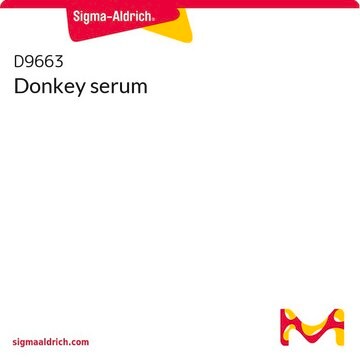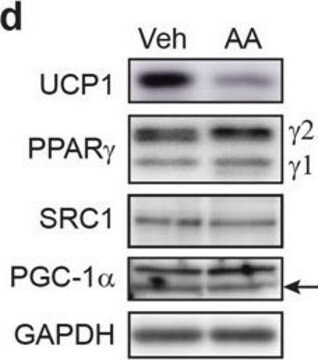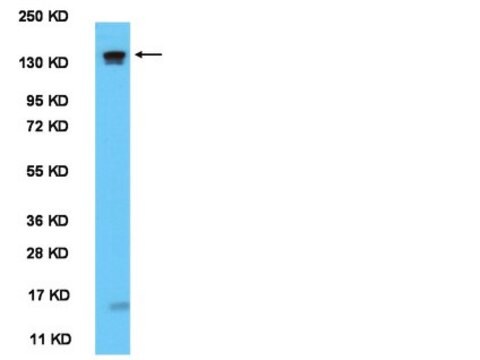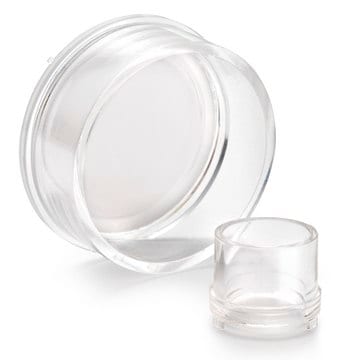おすすめの製品
由来生物
rabbit
品質水準
抗体製品の状態
serum
抗体製品タイプ
primary antibodies
クローン
polyclonal
化学種の反応性
mouse, human, rat
メーカー/製品名
Chemicon®
テクニック
western blot: suitable
GenBankアクセッション番号
輸送温度
wet ice
ターゲットの翻訳後修飾
unmodified
遺伝子情報
mouse ... Clock(12753)
詳細
Circadian Locomotor Output Cycles Kaput(CLOCK)は、体内時計(概日リズム)を制御するタンパク質をコードする遺伝子です。この遺伝子は、転写因子の塩基性ヘリックス-ループ-ヘリックス(bHLH)ファミリーに属するタンパク質をコードしています。このコードされたタンパク質の多型は、概日リズム睡眠障害と関連しています。マウスの同様のタンパク質は、転写因子として働く体内時計制御因子であり、アリル炭化水素受容体核移行因子様タンパク質とヘテロ二量体を形成し、マウスピリオド1の転写を活性化します。
特異性
カタログ番号:AB2233はCLOCKタンパク質を認識します。
他の動物種との反応性は検討されていません。
アプリケーション
ウェスタンブロッティング:
希釈倍率1:500で使用、L6ライセートを電気泳動で分離し、PVDF膜に転写して、抗CLOCK抗体で探索されました。
HRP結合ロバ抗ウサギIgG二次抗体と化学発光検出システムを用いて、タンパク質を可視化しました。
希釈倍率1:500で使用、L6ライセートを電気泳動で分離し、PVDF膜に転写して、抗CLOCK抗体で探索されました。
HRP結合ロバ抗ウサギIgG二次抗体と化学発光検出システムを用いて、タンパク質を可視化しました。
抗CLOCK抗体は、WB用のCLOCKに対する抗体です。
品質
L6組織ライセートにおいてウェスタンブロッティングにより日常的に評価されています。
ターゲットの説明
約95 kDa
アナリシスノート
コントロール
L6細胞ライセート
L6細胞ライセート
その他情報
濃度:ロットに固有の濃度につきましては試験成績書をご参照ください。
法的情報
CHEMICON is a registered trademark of Merck KGaA, Darmstadt, Germany
GenBank is a registered trademark of United States Department of Health and Human Services
Not finding the right product?
Try our 製品選択ツール.
保管分類コード
10 - Combustible liquids
WGK
WGK 1
適用法令
試験研究用途を考慮した関連法令を主に挙げております。化学物質以外については、一部の情報のみ提供しています。 製品を安全かつ合法的に使用することは、使用者の義務です。最新情報により修正される場合があります。WEBの反映には時間を要することがあるため、適宜SDSをご参照ください。
Jan Code
AB2203:
試験成績書(COA)
製品のロット番号・バッチ番号を入力して、試験成績書(COA) を検索できます。ロット番号・バッチ番号は、製品ラベルに「Lot」または「Batch」に続いて記載されています。
Antibodies for assessing circadian clock proteins in the rodent suprachiasmatic nucleus.
LeSauter, J; Lambert, CM; Robotham, MR; Model, Z; Silver, R; Weaver, DR
Testing null
Xiaoqin Liu et al.
PloS one, 7(11), e50602-e50602 (2012-11-29)
Circadian rhythms in metabolism, physiology, and behavior originate from cell-autonomous circadian clocks located in many organs and structures throughout the body and that share a common molecular mechanism based on the clock genes and their protein products. In the mammalian
Yohei Kobayashi et al.
Neuron, 86(1), 264-275 (2015-03-25)
Circadian rhythms control a variety of physiological processes, but whether they may also time brain development remains largely unknown. Here, we show that circadian clock genes control the onset of critical period plasticity in the neocortex. Within visual cortex of
Mark A Naven et al.
Theranostics, 12(8), 3963-3976 (2022-06-07)
The circadian clock in murine articular cartilage is a critical temporal regulatory mechanism for tissue homeostasis and osteoarthritis. However, translation of these findings into humans has been hampered by the difficulty in obtaining circadian time series human cartilage tissues. As
Arthur H Cheng et al.
Cell reports, 26(12), 3191-3202 (2019-03-21)
Clock neurons within the mammalian suprachiasmatic nuclei (SCN) encode circadian time using interlocked transcription-translation feedback loops (TTFLs) that drive rhythmic gene expression. However, the contributions of other transcription factors outside of the circadian TTFLs to the functionality of the SCN
ライフサイエンス、有機合成、材料科学、クロマトグラフィー、分析など、あらゆる分野の研究に経験のあるメンバーがおります。.
製品に関するお問い合わせはこちら(テクニカルサービス)








